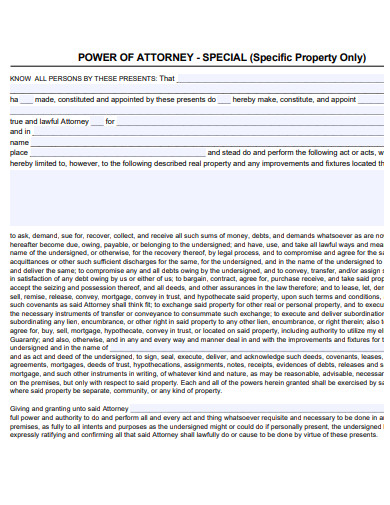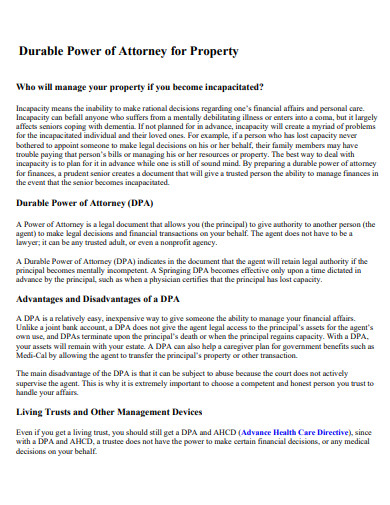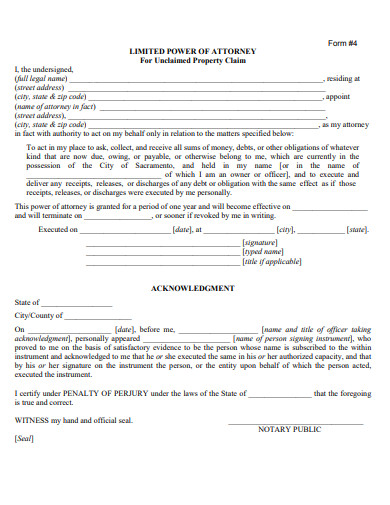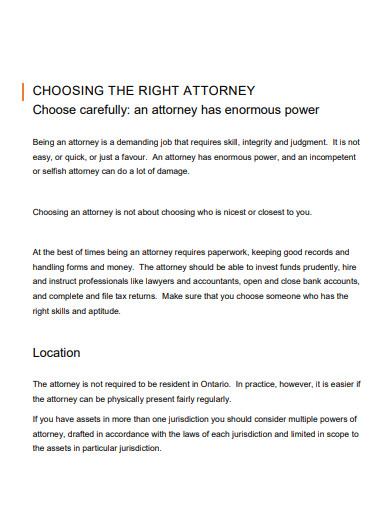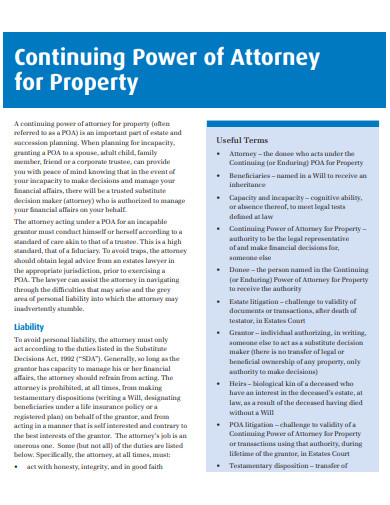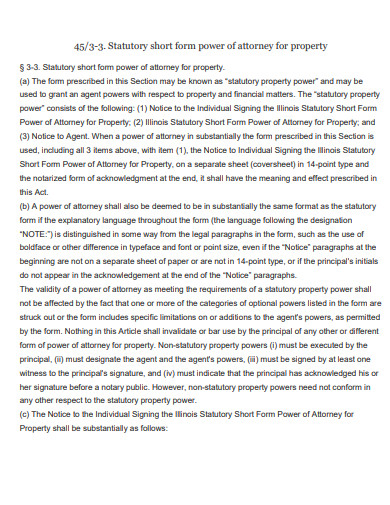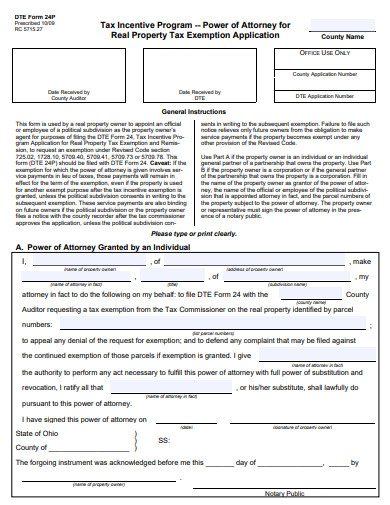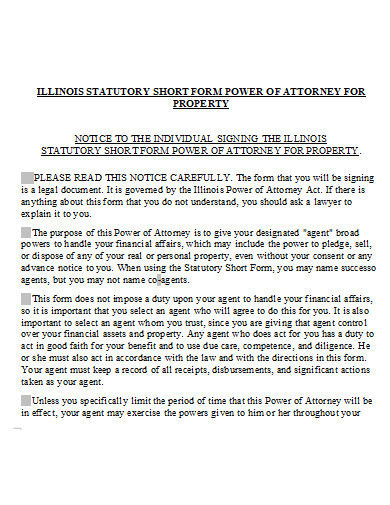Power of attorney is a common legal tool that can be used when a principal has a short-term or long-term illness or disability, or when the principal doesn’t seem to be able to sign important documents. A power of attorney can be revoked for a number of reasons, including the principal’s decision to revoke the power of attorney or their death, the agreement is ruled invalid by the court, or the agent not being able to do the specified tasks. If the couple who signed the consent gets a divorce, it’s possible that the consent will no longer be valid.
It is common for a principal to use a power of attorney when he or she has an illness or disability that could last for a short time or for a long time, or when the principal seems unable to sign important documents. A power of attorney can end in a number of ways, such as if the principal takes back the power of attorney, if the principal dies, if the agreement is ruled invalid by a court, or if the agent is unable to carry out the duties that were outlined in the power of attorney. But a power of attorney can also end if the agent can’t do the things that were written in it. In the case of a married couple, if both the principal and the agent decide to end the marriage, the consent might not be valid anymore.
10+ Property Power of Attorney Samples
1. Shared Property Power of Attorney
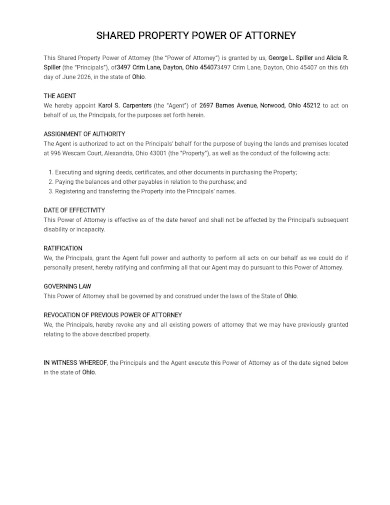
2. Rental Property Power of Attorney
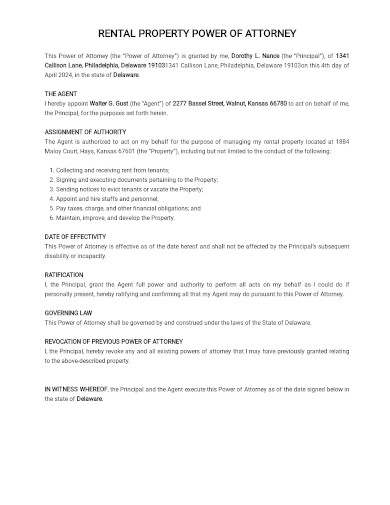
3. Personal Property Power of Attorney
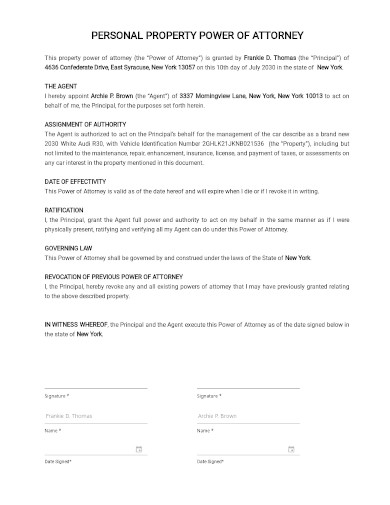
4. Sample Property Power of Attorney
5. Simple Property Power of Attorney
6. Limited Property Power of Attorney
7. Basic Property Power of Attorney
8. Continuing Power of Attorney for Property
9. Formal Property Power of Attorney
10. Property Tax Power of Attorney
11. Printable Property Power of Attorney
What Is a Property Power of Attorney?
When it comes to business, a power of attorney gives the agent the right to act on behalf of the principal in any situation where the laws of the state allow it. In this kind of arrangement, the agent might be given the power to handle the principal’s bank accounts, sign checks on the principal’s behalf, sell property, manage assets, and file taxes on the principal’s behalf. The agent might also be in charge of selling property and taking care of assets.
Writing a Property Power of Attorney
Even though a letter of power of attorney gives someone else the right to act on your behalf, it doesn’t mean that you can no longer act or make decisions on your own. In fact, you can still do both of these things. In fact, even if you and your Agent have different ideas about the situation, it’s up to you to make the final choice. Before you try to write a letter that gives the power of attorney permission, you should talk to an attorney first. In the long run, this will save you both time and work. You can also write the letter yourself by following the steps in the next few paragraphs:
- Come up with a draft
First, you need to write down all of the different skills that your Agent will be able to have. This should be the first thing you do. You need to be very clear about the accounts, properties, and transactions that your Agent will be in charge of because they are unique and should be treated as such. This is because your Agent will be in charge of them. - Make decisions about springing powers
It depends on whether or not it can go back into place on its own. The Agent won’t be able to use these abilities until a certain thing has happened or certain conditions have been met. The Agent won’t be able to use these skills until either of these things happen. In the case of a power that depends on a condition or event happening, the Agent is not legally allowed to act on your behalf until the condition or event happens. Even if the form of power you are using doesn’t require a provision for the power you want, your letter will work as soon as you sign it because it has a provision for that power. - Choose your agent and successor
The most important step in writing this letter is choosing who will act as your agent. You must have full faith in the Agent you choose in order to move forward. Also, it is strongly suggested that you choose a Successor Agent in case your first choice is not an option because they are not available. - Add the expiration date
It is very important that you make it clear in the letter that the permission you are giving to your Agent is only good for a set amount of time that you have already decided on. On the other hand, you can make something called a “durable power of attorney” if you want the letter to be valid even after you die. Even if you become paralyzed, the consequences of what you did will still follow you. No matter what kind of letter you write, you should always keep in mind that your power will end when you die. - Finalize the document
Once you have all the information you need, you can write your letter. Make sure to use clear, easy-to-understand language when talking about the document’s contents. Make sure that the letter you send has your full name, the full name of your Agent, and the full name of your Successor Agent. You also need to put the date the letter was written.
FAQs
Who can override power of attorney?
A power of attorney, also called a POA, is a legal document that lets one person (the agent) make decisions on behalf of another person (the principal). The person who gave power of attorney can always take it back if they are still in their right mind.
What is the difference between the power of attorney and a letter of authorization?
Even though they were written for very different reasons, these two letters are very similar. If you have a letter of authority, you can do something on behalf of someone else. When all the tasks in the letter of authority have been done, it is up to the person who was given the letter to close the document. The permission letter for power of attorney, on the other hand, lets the assignee do a wide range of things.
What is the best form of power of attorney?
Either a general or limited power of attorney can be written. A general power of attorney gives a lot of decision-making power to the agent. This is the best option if you want the person taking care of you and handling your money to have as much freedom as possible.
A power of attorney authorization letter lets someone else do things for you that you won’t be able to do for any number of good reasons. When there are two or more names on bank accounts, properties, or brokerage accounts and the main account holder has a good reason for not being able to act, a power of attorney is needed. This is true even if there are two or more names on the account. In the end, don’t be afraid to use any of the sample letters of authorization for powers of attorney given in this post if you ever need one.
Related Posts
FREE 5+ Sale Power of Attorney Samples in PDF
FREE 5+ Lease Power of Attorney Samples in PDF
FREE 6+ Special Power of Attorney Samples in PDF
FREE 5+ Business Power of Attorney Samples in PDF
FREE 10+ Health Care Power of Attorney Samples in PDF | MS Word | Google Docs
FREE 6+ Company Power of Attorney Samples in PDF
FREE 5+ Affidavit of Desistance Samples [ Case, Settlement, Claim ]
FREE 10+ Affidavit of Funeral Expenses Samples [ Claim, Cost, Benefits ]
FREE 6+ Affidavit of Translation Samples in PDF
FREE 2+ Supporting Deposition Samples in PDF | MS Word
FREE 9+ Sample Orders to Appear in PDF
FREE 5+ Mortgage Deed Samples & Templates in PDF
FREE 13+ General Power of Attorney Templates in PDF | MS Word
FREE 19+ General Affidavit Samples and Templates in PDF
FREE 9+ Patent Assignment Samples and Templates in PDF

